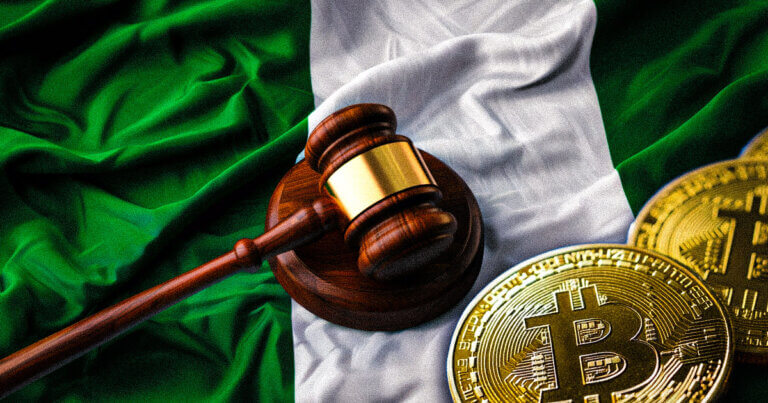Nigeria, Africa’s largest economy, is making waves in the crypto world with a bold new move. The country’s Securities and Exchange Commission (SEC) has rolled out a fresh regulatory framework under the Investment and Securities Act 2025, welcoming stablecoin businesses to operate under strict but clear guidelines. Announced on July 24, 2025, at the Nigeria Stablecoin Summit in Lagos, this shift marks a dramatic pivot from Nigeria’s earlier crackdowns on crypto exchanges like Binance. So, what does this mean for everyday Nigerians and the global crypto market? Let’s dive into why this change is a big deal, how it works, and what it could mean for the future.
A New Chapter for Crypto in Nigeria
For years, Nigeria’s relationship with cryptocurrencies has been rocky, with the government cracking down on unregulated platforms. In 2024, a high-profile $81.5 billion lawsuit against Binance accused the exchange of destabilizing the naira, Nigeria’s local currency. But now, the tide is turning. The SEC, led by Director-General Emomotimi Agama, is opening the door to stablecoin businesses, provided they follow strict rules. This move signals Nigeria’s ambition to become a fintech hub while protecting its markets and people.
Stablecoins—digital currencies pegged to stable assets like the U.S. dollar or naira—are gaining popularity in Nigeria as a shield against the naira’s volatility, which has lost nearly 70% of its value in recent years. With this new framework, Nigeria is betting on stablecoins to boost financial inclusion, lower transaction costs, and power cross-border trade.

What Are the New Stablecoin Regulations?
The Investment and Securities Act 2025 classifies stablecoins as regulated securities, meaning companies issuing them must meet tough standards. These include obtaining licenses, maintaining reserve backing (like cash or assets to support the stablecoin’s value), and complying with anti-money laundering (AML) and know-your-customer (KYC) rules. The SEC has also launched the Accelerated Regulatory Incubation Program (ARIP), a “sandbox” where startups can test their stablecoin products under close supervision.
This approach is designed to balance innovation with safety. “Nigeria is open for stablecoin business, but on terms that protect our markets and empower Nigerians,” Agama said at the Lagos summit. By setting clear rules, the SEC aims to prevent scams and ensure only trustworthy firms operate, giving Nigerians confidence to use stablecoins for everyday transactions like remittances or savings.
Why Stablecoins Matter to Nigerians
Nigeria’s economy has faced challenges, with the naira’s value fluctuating wildly and inflation making life tough for many. Stablecoins offer a solution by providing a stable store of value. Freelancers, small businesses, and traders are increasingly using dollar-backed stablecoins to hedge against currency swings, pay for goods, or send money abroad without hefty fees. In fact, Nigeria is one of the world’s top crypto markets, with millions already using digital assets for daily needs.
The SEC’s new rules could make stablecoins even more accessible. For example, the Central Bank of Nigeria (CBN) has approved cNGN, a naira-pegged stablecoin developed by the Africa Stablecoin Consortium, showing early support for regulated digital currencies. This could transform how Nigerians save, trade, and send money across borders, especially in a country where over 70 million people lack access to traditional banking.

A Shift from Binance Crackdowns to Innovation
Nigeria’s crypto journey hasn’t been smooth. In 2024, the government blamed Binance for contributing to the naira’s crash, leading to a massive lawsuit and tax evasion claims. But the new stablecoin framework shows Nigeria is moving past punitive measures toward a more balanced approach. Instead of banning crypto, the SEC is creating a structured environment where innovation can thrive without risking market chaos.
This shift is already attracting attention. Blockchain.com, a major crypto platform, announced plans to open an office in Nigeria, calling it their “fastest-growing market” in West Africa. The clear regulations have also sparked excitement on platforms like X, where users are calling this a “historic” step for Africa’s digital economy. With Lagos positioned as a potential “stablecoin hub of the Global South,” Nigeria is eyeing a leadership role in African fintech.
What’s in It for Investors and Businesses?
For stablecoin companies, Nigeria’s new rules offer a golden opportunity. The country’s young, tech-savvy population and massive unbanked population make it a prime market for digital currencies. The ARIP sandbox lets startups test ideas without fear of immediate penalties, as long as they follow SEC guidelines. This could attract both local and international firms looking to tap into Nigeria’s 230 million-strong market.
Investors are also taking note. The SEC’s focus on transparency and risk management reduces the chances of scams, making Nigeria a safer bet for crypto investments. Plus, stablecoins could lower the cost of cross-border payments, which currently eat up 6-8% in fees for African remittances. Agama envisions a Nigerian stablecoin powering trade from Dakar to Dar es Salaam within five years, a goal that could reshape African commerce.

Challenges and Risks Ahead
While the new regulations are exciting, they come with hurdles. Stablecoin firms must navigate complex compliance requirements, which could raise costs and slow growth. The division of roles between the SEC (overseeing stablecoin issuance) and the CBN (handling payments) might create confusion if not coordinated well. Critics also warn that enforcement will be key—Nigeria’s past struggles with unregulated platforms like the CBEX Ponzi scheme highlight the need for vigilance.
For everyday Nigerians, the biggest risk is understanding these new systems. While stablecoins are user-friendly, scams and fake tokens remain a threat. The SEC’s strict oversight aims to address this, but users should still verify firms and avoid unregulated platforms.
Why This Matters for Africa and Beyond
Nigeria’s embrace of stablecoins could set a blueprint for other African nations grappling with currency volatility and limited banking access. By prioritizing “African solutions for African problems,” as Agama puts it, Nigeria is tailoring global fintech trends to local needs. If successful, this could turn Lagos into a digital finance capital, attracting global investment and boosting financial inclusion across the continent.
Globally, Nigeria’s move aligns with trends in places like the EU and Singapore, where stablecoin regulations are also taking shape. As stablecoin adoption grows—potentially reaching a $3 trillion market by 2030—Nigeria’s early leadership could give it a competitive edge.
Final Thoughts: A Bright Future for Stablecoins in Nigeria?
Nigeria’s new stablecoin regulations mark a turning point, shifting from crypto crackdowns to a forward-thinking embrace of digital finance. By offering a clear legal path, the SEC is inviting innovation while protecting consumers, a balance that could transform how Nigerians use money. For businesses and investors, this opens up a massive market with untapped potential. For everyday people, it’s a chance to access stable, affordable financial tools in a turbulent economy.
As Nigeria takes this bold step, the world is watching. Will Lagos become the stablecoin hub of the Global South? Only time will tell, but with a young population, growing digital infrastructure, and a clear regulatory vision, Nigeria is positioning itself as a leader in the future of finance.
Disclaimer: Cryptocurrency investments carry risks. Always research thoroughly and consult a financial advisor before investing.






















